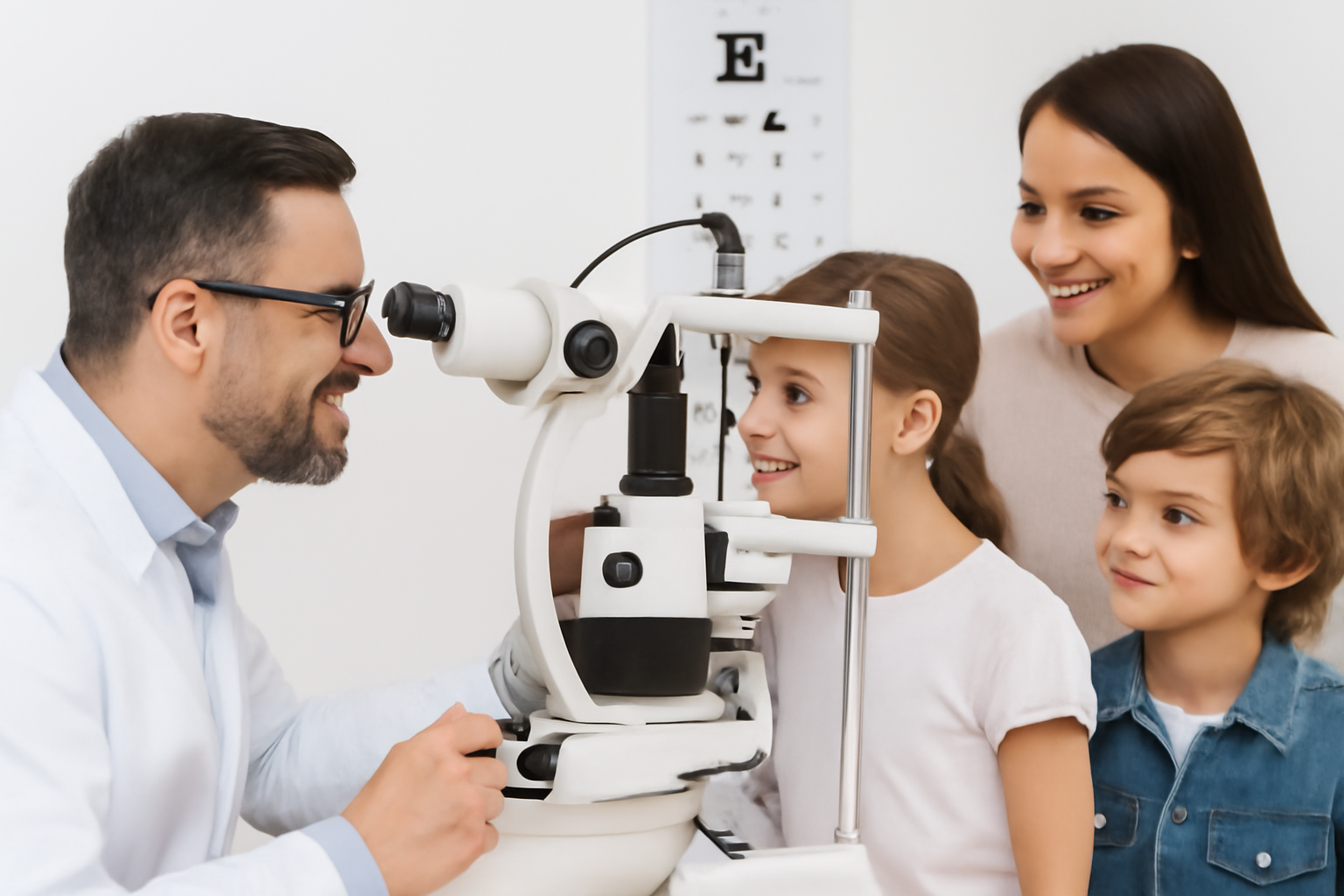Good vision plays a major role in how children learn, how adults work, and how seniors maintain independence. But eye exams aren’t just about checking whether you need glasses; they reveal vital clues about your overall well-being. For families, keeping up with regular eye appointments at a family eye care Quincy IL practice can support long-term health, detect early signs of medical conditions, and ensure every member—from toddlers to grandparents—enjoys strong, comfortable vision.
Understanding the connection between eye health and general wellness helps families take proactive steps toward better living. Below is a closer look at why comprehensive eye evaluations are essential for every age group.
A thorough eye exam evaluates not only how clearly you see, but also the condition of the internal structures of the eyes. Because blood vessels and nerves are visible inside the eyes, they often show early signs of health issues before symptoms appear elsewhere in the body.
- Early indicators of high blood pressure
- Signs of diabetes or diabetic-related changes
- Inflammation linked to autoimmune diseases
- Neurological concerns affecting visual pathways
- Cholesterol buildup that may affect blood flow
These findings allow families to detect health concerns sooner and take action before they become more serious.
Children rely heavily on their eyesight for learning, reading, problem-solving, and physical activities. Undiagnosed vision issues can affect behavior, academic performance, and confidence.
- Detecting focusing or tracking problems that affect schoolwork
- Identifying lazy eye (amblyopia) or eye misalignment
- Monitoring for nearsightedness, which often progresses during school years
- Reducing eye strain from digital screens
Families in communities like Quincy, IL, often rely on routine checkups at a local family eye clinic to ensure their children’s visual development stays on track.
For adults, eye examinations do much more than update prescriptions. Many systemic health problems first appear in the eyes, and catching them early keeps individuals healthier overall. To learn more about protecting your eyesight with the right eyewear, check out our guide on prescription safety glasses in Malaysia.
- Elevated blood pressure
- Thyroid conditions affecting eye movement or appearance
- Early nerve-related changes connected to neurological disorders
- Retinal findings linked to cardiovascular concerns
Regular checkups also help adults manage visual demands from computer work, driving, and long hours on digital devices.
As people age, the risk of eye diseases naturally increases. Vision changes can affect mobility, safety, and quality of life. A trusted provider familiar with family vision care in Quincy (LSI variation) can help seniors stay independent and healthy.
- Cataracts causing cloudy or dim vision
- Macular changes affecting central sight
- Glaucoma-related pressure changes
- Difficulty seeing at night
- Dryness or irritation from reduced tear production
Early management can slow disease progression and maintain clarity for longer.
Because the eyes are connected to the brain, blood vessels, and nervous system, they act as a window into the body. Eye specialists can identify subtle changes that point to hidden health issues.
- Blood Vessel Health: Retinal imaging can show damage from hypertension or diabetes.
- Nerve Function: Changes in the optic nerve may signal neurological concerns.
- Blood Sugar Monitoring: Eye changes often show up before diabetic symptoms do.
- Cardiovascular Clues: Blockages or cholesterol deposits can appear in the eyes.
Routine vision checks serve as an early warning system for families of all ages, promoting long-term wellness.
Eye health isn’t only about doctor visits—daily habits also make a big difference. Families can work together to build strong vision routines.
- Eat meals rich in leafy greens, fish, and colorful fruits
- Encourage outdoor play for children to support visual development
- Limit excessive screen time and take scheduled eye breaks
- Wear protective eyewear during sports or outdoor activities
- Stay consistent with annual or biannual eye appointments
Small lifestyle changes can protect sight and boost overall family wellness.
Families should be aware of symptoms that indicate the need for a professional evaluation, especially in children and older adults.
- Frequent squinting or headaches
- Difficulty reading or focusing
- Excessive rubbing of the eyes
- Blurry or fluctuating vision
- Sensitivity to light
- Trouble seeing at night
Addressing these signs early helps prevent long-term discomfort or worsening vision.
Eye exams play a powerful role in maintaining overall well-being for families. Whether detecting hidden health issues, ensuring children succeed in the classroom, or helping adults and seniors stay visually comfortable, regular vision checkups are an essential part of a healthy lifestyle. By staying proactive and keeping up with routine eye care, families can protect their eyesight and support better whole-body health today and for years to come.

